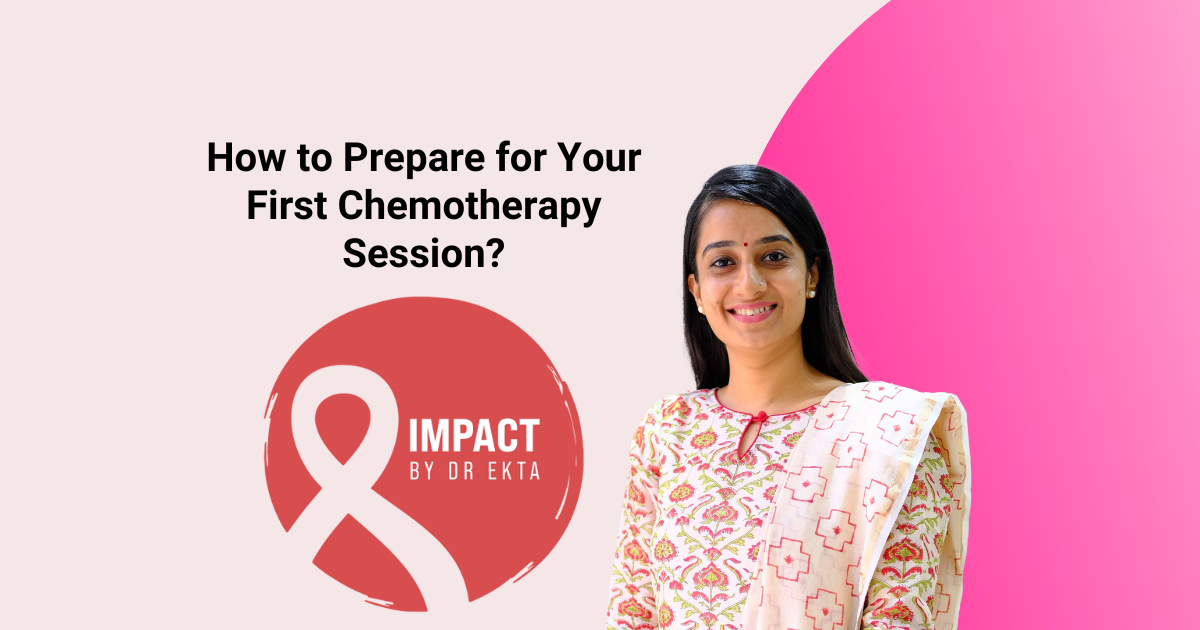Starting chemotherapy for the first time can be an overwhelming experience. As a patient or a caregiver, it’s normal to feel anxious, uncertain, or even frightened. But the good news is that proper preparation, both physical and emotional, can make a significant difference in your overall experience. This blog aims to guide you step by step so you feel more confident and better prepared before beginning your chemotherapy session.
Understanding Chemotherapy: What to Expect
Chemotherapy is a type of cancer treatment that uses powerful drugs to kill fast-growing cancer cells in the body. It may be administered orally, intravenously (IV), or through other methods, depending on your specific type of cancer and treatment plan.
What Happens During a Chemotherapy Session?
- Medical Evaluation: Your oncologist will perform blood tests and health assessments to determine readiness.
- Drug Administration: The chemotherapy drugs will be given based on a carefully planned schedule.
- Monitoring: Medical staff will monitor you for side effects during and after the session.
Knowing what to expect during your chemotherapy session can reduce anxiety and help you mentally prepare.
Practical Preparations Before Your First Chemotherapy Session
Taking a few simple steps ahead of your session can improve your comfort and ease throughout the process.
What Should You Bring?
- Comfortable Clothing: Choose loose-fitting clothes with easy access to your port or arm.
- Snacks and Water: Light snacks can help prevent nausea, and hydration is crucial.
- Entertainment: Bring a book, tablet, music, or something to pass the time.
- Blanket and Pillow: Some patients feel cold during treatment and appreciate added comfort.
Home Preparations
- Arrange Transportation: It’s safer to have someone drive you to and from the hospital.
- Stock Your Pantry: Keep easy-to-prepare, bland foods ready at home.
- Prepare Medication: Ask your doctor about pre-medications like anti-nausea drugs.
Emotional and Mental Preparation
Going through chemotherapy is not just physically taxing; it can also take a toll on your mental health.
Coping Strategies:
- Bring a Companion: A supportive friend or family member can ease emotional stress.
- Mindfulness or Meditation: Practice breathing exercises or guided meditation to manage anxiety.
- Counseling Support: Don’t hesitate to speak with a psychologist or join a cancer support group.
Building a Support System
- Family and Friends: Share your treatment schedule and how they can support you.
- Support Groups: Connect with other patients undergoing similar treatments.
Common Side Effects and How to Manage Them
Every person responds differently to chemotherapy. While not all patients experience the same side effects, being informed helps you act promptly.
Possible Side Effects:
- Fatigue: Get plenty of rest, and listen to your body.
- Nausea or Vomiting: Use prescribed anti-nausea medications.
- Hair Loss: Consider cutting your hair short beforehand or looking into wigs/head coverings.
- Appetite Changes: Eat small, frequent meals.
- Mouth Sores: Maintain oral hygiene and avoid spicy or acidic foods.
What You Can Do:
- Keep a symptom diary to report any changes to your oncologist.
- Ask about medications or lifestyle changes to reduce side effects.
Communicating With Your Healthcare Team
Maintaining open communication with your oncologist and nurses is essential.
Questions to Ask:
- What drugs will I receive, and how do they work?
- What are the expected side effects and how can they be managed?
- When should I call you about a symptom or side effect?
- Are there dietary or activity restrictions?
Maintain Records:
- Keep copies of lab reports, prescriptions, and appointment details.
- Track your symptoms, medications, and reactions to the treatment.
Life After the First Session: What Comes Next?
Your first chemotherapy session is just the beginning of your treatment journey. Here’s what typically follows:
After-Care Tips:
- Hydration: Drink plenty of water to flush out the medication.
- Monitor Symptoms: Be alert for any unusual reactions or signs of infection.
- Follow-Up Appointments: Attend your check-ups for blood tests and physical evaluations.
Emotional Recovery:
- Accept that feeling emotional after your first session is normal.
- Talk to your support system or healthcare provider if you’re feeling low.
Conclusion
Preparing for your first chemotherapy session is a blend of practical planning, emotional readiness, and clear communication with your medical team. By taking the time to prepare in advance, you can reduce anxiety, manage side effects better, and actively participate in your treatment journey.
Remember, you’re not alone, lean on your caregivers, medical team, and support groups as you navigate this path toward healing.
For more guidance on treatment support or cancer care, explore our blog library or speak with your oncologist or call on 08866843843 today!

